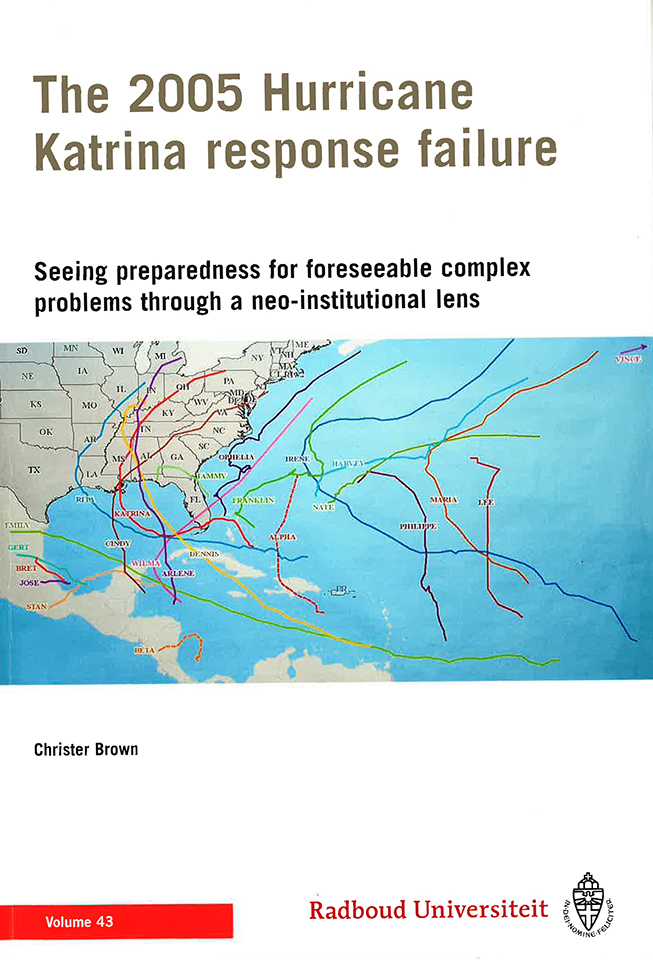The 2005 Hurricane Katrina response failure
95 kr
Tillgänglighet: 20 i lager
Using an institutional perspective on preparedness, this doctoral dissertation examines the Federal Emergency Management Agency’s (FEMA) capacity to meet widely recognized and deeply understood threats and manage Hurricane Katrina, which was a very foreseeable hurricane threat. The study shows that complex systems of government create deep interdependencies that pose major challenges to multi-level interagency coordination in dealing with problems, even those that are foreseeable.
This study is the dissertation written by Christer Brown. It was successfully defended on December 2, 2015, at the Department of Political Science, Institute for Management Research, Radboud University Nijmegen in the Netherlands.
(Cont.) When viewed through a neo-institutional lens, the case reveals the role that norms, rules, routines, values, and individual interests played in determining how FEMA responded to major change in the institutional environment and what implications this had for the agency’s preparedness for hurricanes.
We also see that the apparent deterioration of FEMA’s preparedness ahead of Hurricane Katrina in 2005 was as much a result of elite over-attentiveness to terrorism as it was FEMA’s own resistance to change. This served to weaken the agency’s ability to garner political support and its readiness to partner with other stakeholders. More generally, this study provides insights concerning how and for what organizations prepare, but also how we might go about more accurately gauging organizational preparedness in future.
Utgivningsår: 2015
ISBN: 978-90-824210-0-2
ISSN: 1650-3856
Format: Mjukpärm
Sidomfång: 206
Artikelnummer: FHS-07135
Serie: Crismart
